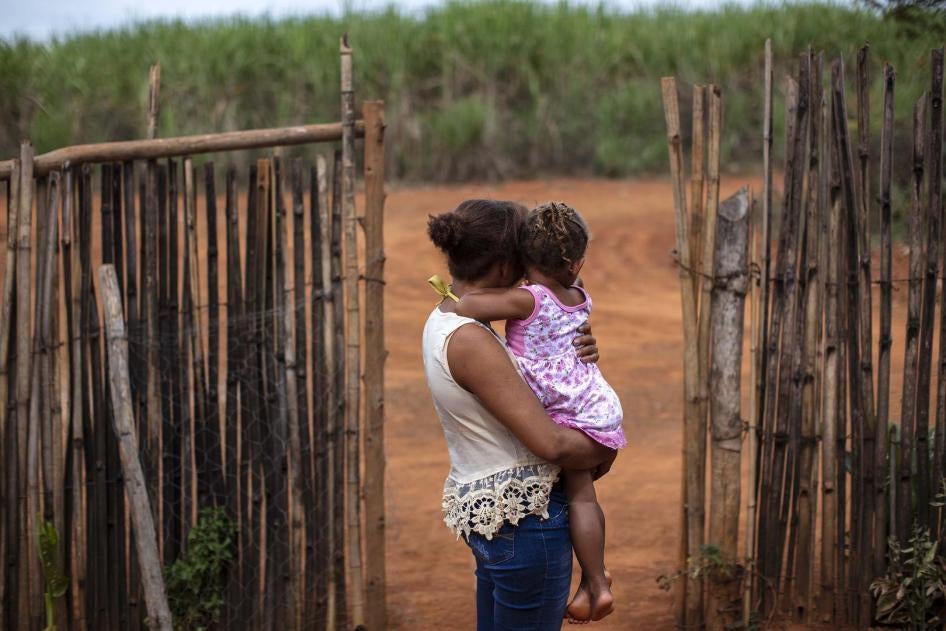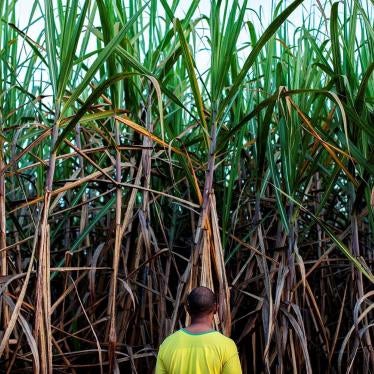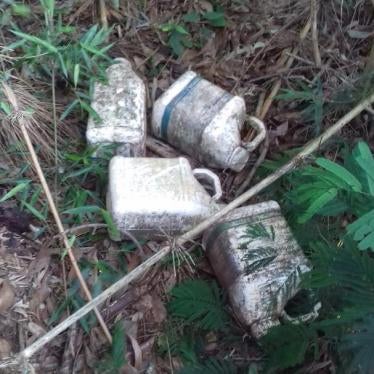Five years ago, an airplane sprayed pesticides over a rural school, São José do Pontal, located among the vast corn and soy plantations extending around Rio Verde, a city in Goiás state. About 90 people—mostly children studying at the school—were hospitalized. The incident shocked the nation, and, in the immediate aftermath, Brazil was concerned about pesticide poisonings in rural areas.
Not only has the attention to this case dissipated ever since, but also little has changed. Rural people throughout the country are repeatedly poisoned by pesticides. A new report by Human Rights Watch finds that ordinary people going about their daily routines face toxic exposures from pesticides sprayed in immediate proximity to their homes, schools, and workplaces.
They are poisoned when pesticide spray drifts off target crops during application, or when pesticides vaporize and drift to adjacent areas in the days after spraying. We talked to people in seven sites, including farming communities, indigenous communities, quilombos, and rural schools—across all regions of Brazil. They told us of experiencing vomiting, nausea, headache, and dizziness, the symptoms of pesticide poisoning.
For example, I visited a rural school in Primavera do Leste municipality in Mato Grosso to talk to teachers and students. There plantations begin about 15 meters from the closest classrooms. I talked to a woman who told me about being poisoned in late 2017 when she went to night school classes.
“I started vomiting many times, until I had thrown up all I had in my stomach and was just retching,” she said. Classes were cancelled that night and students were sent home.
Brazil’s response to pesticide drift is failing. While a Ministry of Agriculture regulation prohibits aerial spraying within 500 meters of inhabited sites, this buffer zone is often ignored in practice. There is no corresponding national regulation limiting ground spraying.
Acute pesticide poisoning and chronic exposure are invisible to Brazil’s broader public and policymakers. One of the most insidious reasons is a fear of reprisals from wealthy and politically powerful landowners that grips many rural communities. Members of five of the seven rural communities we visited said they had received threats or were afraid of retaliation if they reported pesticide drift. In 2010, a farmer who was an anti-pesticide activist was shot and killed because he pushed the local government to ban aerial spraying that year.
Our findings are timely, as Brazil’s Congress will consider a bill to further weaken the regulatory framework for pesticides over the next few months. Among its many proposals, the bill would substantially reduce the role of the health and environment ministries, the agencies with expertise in the impact of pesticide use, in determining which pesticides can be used in Brazil.
Brazil should not allow pesticide spraying from airplanes over people’s houses, or from tractors beside classroom windows. Urgently, Brazilian authorities should undertake a thorough and time-bound review of the impact of pesticides on the health of rural communities. While doing this, Brazil should impose a moratorium on aerial spraying and impose and enforce an immediate prohibition on ground spraying near sensitive sites. And Congress should vote against the bill that would further weaken the regulation of pesticides in Brazil.
--
Richard Pearshouse is associate environment and human rights director at Human Rights Watch.










